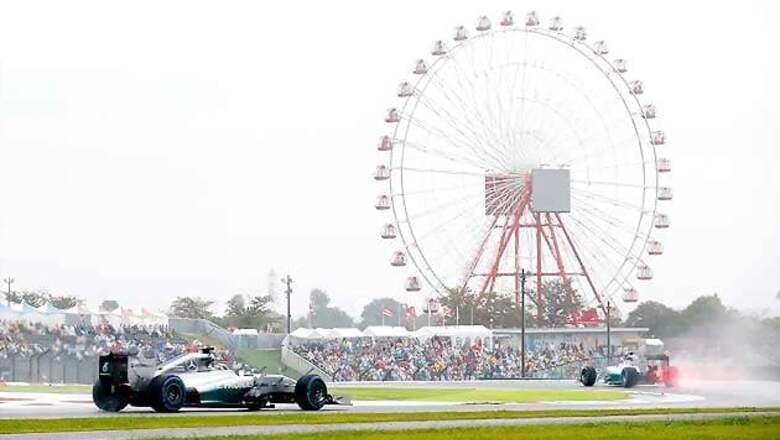
views
More Formula One teams could follow Caterham and Marussia into administration or failure, the former head of the sport's governing body Max Mosley warned on Monday. This week's US Grand Prix in Austin, Texas will have just nine teams on the track, the lowest number since 2005, and Mosley feared the number could fall further.
"It's not a fair competition any more," said the former International Automobile Federation (FIA) president. "The big problem is the big teams have so much more money than teams like Caterham and Marussia.
"In the end they were bound to drop off. And they may not be the last," the Briton told the BBC. Marussia were put into administration on Monday, a week after Caterham.
Both teams were the 'paupers' of the paddock, struggling on budgets of 50 million pounds ($80.59 million) or less compared to 200 million or more for the likes of Ferrari, Mercedes and Red Bull.
Mosley tried and failed to bring a cost cap during his time at the FIA helm and said there should be some basic level of equality.
"From a sporting point of view, the sport should split the money equally and then let the teams get as much sponsorship as they can," he added.
"A team like Ferrari will always get more sponsorship than Marussia but if they all get the same basic money then they all start on a level playing field, particularly if you have a cost cap where you limit the amount of money each team is allowed to spend."
Formula One has revenues of more than $1.5 billion, with more than half going to the commercial rights holders CVC. Teams share 47.5 percent as a prize fund but the distribution is based on performance.
Certain teams, such as Ferrari, also get additional payments based on past achievements and to recognise their importance to the sport.
Rising engine costs compared to last year have also made the sport more expensive, with a complex V6 hybrid turbo replacing the old V8 engines this year and an engine supply costing a customer team more than $30 million over a season.
"I'm in favour of the greener engines," said Mosley. "The mistake was not saying to the big manufacturers that you can spend as much as you want on research but the maximum you can charge per season is something like three to four million pounds."


















Comments
0 comment